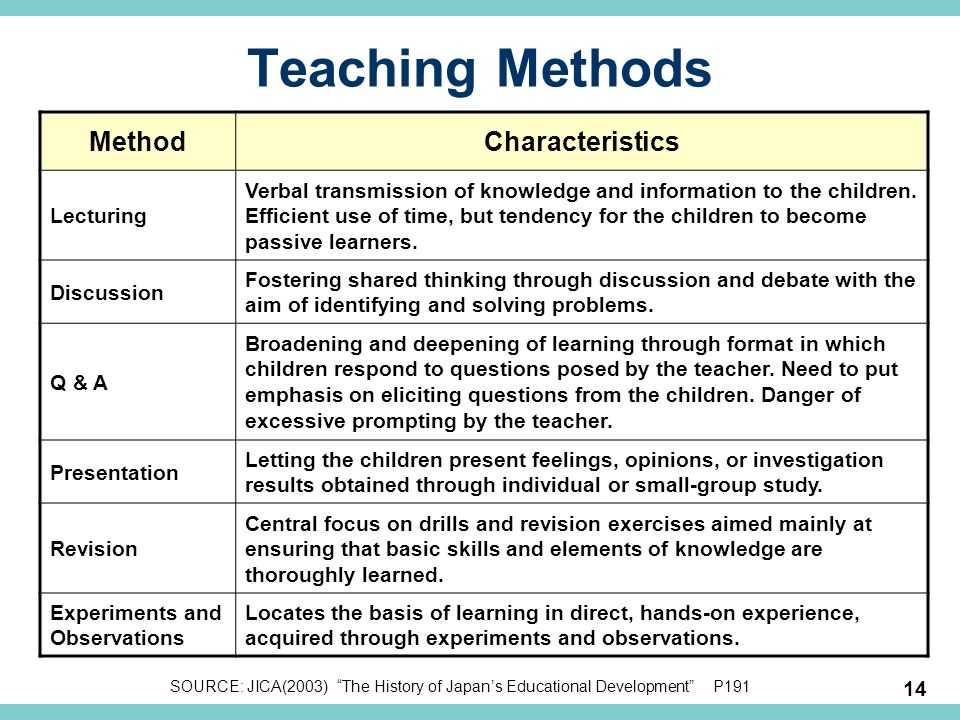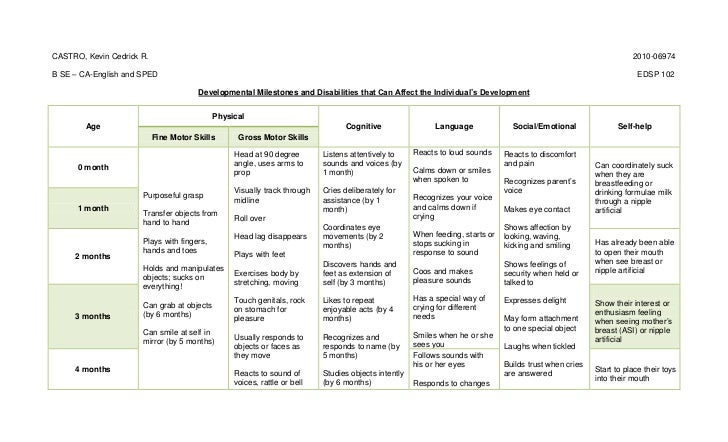How to win custody of my child as a mother
50 + Custody Battle Tips for Mothers
The most important custody battle tips that will help mothers make smart choices
by B. Robert Farzad
Here are over 50 essential custody battle tips for mothers
Hello moms. In this article about custody battle tips for mothers, we are going to tell you something you deserve to know - the blunt truth. We will guide you through the following.
- The truth about the California family law system,
- Its sometimes dysfunctional nature,
- The useless nature of the victim mentality, and
- How courage is one key to success.
I will show you how a fact driven, logical and straight line approach that focuses on the child's best interest is the most efficient means to success.
Custody battle tips for mothers will also teach you to stop feeling and start thinking. This is what I stated when Lindsey Ellison interviewed me for an article she wrote on the Huffington Post about the "secret to divorcing a narcissist. "
Strap yourself in because our battle tips guide for mothers is about to begin.
Custody battle tips for mothers starts with understanding the family law system
If custody becomes a battle, the first thing moms should understand is the lay of the land. First, there are only two ways a custody case finalizes:
- The first is through a settlement. Since you are reading this, we assume a settlement is not likely, or
- The second is through a family law judge making the decisions.
So when evaluating battle tips, realize that the forum (the family court) will have some limitations.
The family law system has limitations
What limitations exist?
- Your case will be among other cases on the family law judge's calendar on a court date. "Specially set" cases is one exception we see but even that is hit and miss. Specially set cases are those that are set with the understanding the hearing will start on that date. However, that does not guarantee the judge will dedicate an entire day or entire half day to your case.
 That depends on the county.
That depends on the county. - The family law judge has likely not read all of the paperwork on the case days or weeks in advance. He or she also likely does not know your case's facts cold. Unfortunately, a family law judge may sometimes learn your case very close to hearing or even during its presentation.
- Not every family law judge will have the same level of family law experience, knowledge, temperament or patience. Remember that a judge is elected or appointed to the bench. They don't go through years of family law judge training before they become family law judges. Many of the experienced ones learned on the job or used to practice family law. Some of them may have never practiced family law a day in their career as a lawyer.
- The judge has likely asked your attorney and that of the other parent to give a time estimate for the hearing. Most judges expect the lawyers to stick to that time frame. Some judge are more flexible than others.
 That means the judge may impose time limitations on the hearing's duration.
That means the judge may impose time limitations on the hearing's duration. - The family law judge will likely focus on the big picture, the most relevant facts and what is in the child's best interest,. The family law judge will likely not focus on every detail that one or both parents think is important. Sometimes, parents find criticism in just about everything the other parent does.
- Words like a "children's best interest" is not a black of white formula. The big D is not divorce, it is "discretion." That is what the family law judge has when making decisions on child custody issues.
That is why the first custody battle tip is understanding there are some limitations in the California family law judicial system. Those limitations affect everyone, not just you.
Understand financial limitations that may exist
We are highly experienced and knowledgeable child custody attorneys.
In all of the years we have practiced law, we have never had a client that had endless resources to litigate their child custody case.
Some may have a much greater ability to pay than others. Perhaps a parent on the other side has the same, greater or less ability to afford attorney's fees.
All these are factors to some extent on custody battle tips for mothers. We discuss the issue of attorney's fees later in this custody battle tips guide.
You must have courage when you face a custody battle
It will not work and all of the tips out there will not help you if you do not have the courage to do the right thing consistent with the children's best interest.
What do we mean by that? Here are 3 custody battle tips for mothers about courage.
1. Don't give up on what is in your children's best interest.
2. One of the most important custody battle tips for mothers is "have courage."
If a mother has been the victim of physical, emotional and even financial abuse, she may feel beaten down.
Mothers in such situations sometimes come to our family law firm feeling distraught and disillusioned.
But that is exactly when we help those moms step up and gain the courage to do the right thing for their children.
Remember abusers are bullies and bullies of any gender are ultimately insecure and cowards.
Many of them, when confronted by their abuse and held accountable for it, collapse under the pressure. But to confront them and hold them accountable requires a mother to take action - hire an experienced and knowledgeable family law attorney and seek court orders consistent with the children's best interest.
3. Realize there are no guarantees or assurances things will go your way.
If you had those guarantees, the decision to seek proper orders is easy. But that is not what courage really is. Courage is doing the right thing for your children and making the sometimes difficult decisions.
Six custody battle tips for mothers when separating from the father
Separation usually precedes divorce. Some spouses can handle living together while they go through a divorce. Most of them cannot. Here are six custody battle tips for mothers when separating from the father:
Most of them cannot. Here are six custody battle tips for mothers when separating from the father:
- Start consulting with family law attorneys immediately. Get an attorney early in the process. Getting advice at this stage can set up the entire case for a smoother process and more successful end.
- Be careful with your documented communication with the other parent. Text messages and emails may be used in court. Stating things in an emotional state is usually not wise.
- Don't be bullied into doing what the father wants to do if you do not reasonably believe what he wants is in the children's best interest. That is why you should seek the advice of an experienced family law attorney immediately - so you understand your options.
- Do not assume you have to move out just because the father demands you do so, even if the father owns the home you live in (regardless of whether or not you are married). An experienced family law attorney can provide you with your options.

- If the father is moving out and you are concerned about your financial ability to pay things such as a mortgage, remember that you have an option to seek temporary support, whether child, spousal or both depending on your facts. Learn about child support and spousal support in California by reading the following guides:
- California child support laws
- California alimony laws
- Do not attempt to represent yourself unless there is no other reasonable option. Even if there is no way you can afford an attorney, many of our California family courts have a self-help center to guide you through the paperwork. Use it.
Seven custody battle tips for mothers when obtaining temporary orders
What is a temporary order?
The temporary order is the one you obtain while the divorce or parentage case is pending. It is not the one at the end of the case that become a judgment.
To learn more about temporary orders, check out our guide on the California divorce process.
Custody battle tips for temporary orders.
- Get temporary court orders quickly if the father is likely to take the children and not return them or otherwise play games with parenting time.
- When thinking about what custody and visitation orders to seek, always think about the children's best interest. Think about what would promote their stability, health, safety, their education needs and general welfare.
- Don't take extreme positions when you seek temporary orders unless they are justified. Ask for sole legal custody and supervised visits when the child is or will be in danger. Those include for example when the father is physically or seriously emotionally abusive, has a substance abuse addiction that places the child in danger, or other circumstances. Asking for it as a starting point for negotiations or to use the child as leverage may blow up in your face and you may be labeled a restrictive gatekeeper as a result. In some cases, if you make willfully false allegations of abuse, you may lose custody.

- Check out our article on divorcing an alcoholic to learn more about how to handle a dissolution when faced with this addiction.
- Once you obtain temporary orders, stick to them. Getting orders and then allowing significant deviations from them with a difficult father generally backfires by creating a new status quo or further contention. Minor deviations and reasonable flexibility is fine but think about it - there is a reason you wanted court orders.
- Try not to separate siblings even if there is an age difference. The bond between siblings is too important.
- Always be truthful in the declaration you sign when you seek a temporary order. Statements under oath attached to the request for order must be truthful under penalty of perjury. This is not a game being played and contrary to popular belief, the liar doesn't generally win. The liar loses credibility and once credibility is lost, it is very difficult to get it back.

- If there has been domestic violence, as defined by the domestic violence prevention act, and you need protection, those temporary orders you seek should include a restraining order. Do not assume things will simply work themselves out. Your safety and that of your children should be your highest priority.
We Hope You Are Enjoying This Article
As you continue to read this article, we wanted you to know the attorneys at our premier family law firm are a phone call or email away.
Click below if you want to call us. Our office hours are Monday through Friday, 8 AM to 5 PM.
The contact form you see will send us an email.
Now, back to the article!
Call us
Email Us 24/7
Contact Us
Your First and Last Name *
Other Party's First and Last Name *
Your phone number *
Email Address *
The information you provide does not form any attorney-client relationship. Please only provide the information the form requests. We must first conduct a conflict check before we contact you. By contacting us through this form, you authorize us to communicate with you by phone or email and you agree to these terms and conditions.
Please only provide the information the form requests. We must first conduct a conflict check before we contact you. By contacting us through this form, you authorize us to communicate with you by phone or email and you agree to these terms and conditions.
I agree to the above terms and conditions *
Hidden website input
Five custody battle tips for mothers when obtaining trial orders
What is a trial? A trial is the final hearing in a divorce or parentage case that leads to a judgment. To learn more about trials, read our guide on California divorce trials.
Custody battle tips for trial orders
- How are the temporary orders going? Is it working out well? If so, consider whether it makes sense to ask for the temporary orders to become trial orders.
- Do not get yourself caught up in minutia. An hour or so a week here
or there may not be worth spending thousands and sometimes tens of
thousands of dollars in attorney fees.
 Think about the big picture even
if the father is caught up in this type of minutia and nonsense.
Think about the big picture even
if the father is caught up in this type of minutia and nonsense. - Regularly communicate with your family law attorney about the trial and do so early and often. Know the following:
- what you are seeking,
- why you are seeking it,
- the arguments that you have and the father has,
- the potential outcomes, and
- the budget to get your case through trial.
- Make settlement offers even if you do not believe the father will accept it. You and your lawyer should be proactively trying to settle the case on reasonable terms. Even if the case does not resolve, those documented settlement offers can help you when you seek attorney fees against the father for unreasonable positions he has taken. You should become familiar with Family Code 271.
- Trial will likely include your testimony under oath and in court.
Make sure you have read all of the court paperwork and are familiar with
what you will be testifying about.
 Set the meeting with the attorney to
discuss your testimony so you are prepared.
Set the meeting with the attorney to
discuss your testimony so you are prepared.
Three custody battle tips for mothers when obtaining post judgment modification orders
What is a post judgment modification?
After a trial or settlement and a judgment that happens as a result, a party may decide to seek a modification of custody, visitation (parenting time) or both. There must be proper grounds to seek such a modification.
Custody battle tips for post judgment orders
- Know the difference between a post judgment modification of child custody and a post judgment modification of visitation, which is also called parenting time. The legal standard is different for each one. Your family law attorney can explain this to you.
- Do not jump into a post judgment modification
unless and until you know you have proper grounds for it. Being unhappy
with a court's decision that led to a judgment is not a proper basis.
In some circumstances, you may need to show a significant change of circumstance since the court's order. The legal standard can get complicated. Do not try to navigate this by yourself.
- Unless there is an emergency, there is often wisdom in trying to resolve post judgment modification issues before filing a request for order. Settlement discussions may lead to resolution. But even if they do not, you have at least documented your attempt to resolve the issues before you seek a court order. This may benefit you when you ask the court for attorney's fees against the other party.
Five custody battle tips for mothers when the father is abusive toward the child or children
Abuse can come in several forms. In custody battle guide for
mothers, we focus on physical or serious emotional abuse. This guide
does not discuss issues such as getting social services or law
enforcement involved. That is outside the scope of this guide.
If you reasonably suspect the father is being abusive toward the children and you decide to seek family law court orders, here are some custody battle tips.
We also encourage you to read our article on divorcing an abusive husband.
Custody battle tips when dealing with child abuse
- Take child abuse seriously. Do not assume the abuse will simply stop. The father or any parent that physically or emotionally abuse as a child will typically continue to inflict that abuse.
- If the abuse is documented through emails, text messages or other forms, make sure you bring that to your attorney's attention. Such documentation can be used in court to show the nature and extent of the abuse.
- If there are witnesses to the abuse, they should be subpoenaed to the hearing. Your lawyer can assist you with this.
- If the abuse presents an imminent threat of harm to the children,
consider seeking emergency orders.
Some emergency family law orders may need to be sought without notice to the other parent.
- Do not ever lie, willfully understate or willfully exaggerate the nature or extent of child abuse. Any of these can get you into trouble.
Custody battle tips for mothers in custody move away cases
What is a move away case?
A move away case is generally one where one parent seeks to move the children to another county, state or even out of the country against the wishes of the other parent. We wrote an article titled "how do you win a child custody move away case in California" you will enjoy if you want to learn more about child custody move away cases.
What are some custody battle tips for mothers in move away cases? Let's take a look.
Seven custody battle tips for mothers when seeking a move away
For the purposes of this guide, we will assume the mother is seeking
the move away. Here are some custody battle tips for mothers who seek
to move with the child.
- Are you familiar with the current court order? Does it state what must happen before a move? Is it completely silent on the subject? Either way, you must present the order to an experienced family law attorney to tell you if your order addresses the move away situation and how.
- Be ready to present the court with specifics on the following:
- where the child will live,
- where the child will go to school,
- how and why his or her life there compared to here will be more consistent with the child's best interest, and
- additional facts as to why it is in the child's best interest to move.
- We believe that rarely can a self represented person properly present a move away case. Get legal help. Get experienced family law representation. Due diligence before you file the move away is critical.
- Through experienced legal representation, get familiar with the
legal standard for your specific move away case.
It is not the same in every case. If you do not understand the legal standard that applies to your case, you will not know what facts are important.
- Are you aware of what may happen if your move away is denied? If
not, get legal advice before you file anything. In our experience,
California family law judges assume you are moving with or without the
child when you file a move away case. That means if the court denies
your move away, the court then has to assume you are moving without the
kids. That means the father may get custody of the children. Is that a
risk worth taking?
- On this issue, there is California law on both sides of this argument but what we have written above has been the more common approach in our experience. That does not guarantee anything in your case. Get legal advice about your specific situation.
- Have you prepared yourself for the legal battle that may come with
the move away? You better do so.
Move away cases can be some of the most high conflict custody cases out there, right next to abuse cases.
- Trying to settle the move away issues even before you file is sometimes a good idea. That does depend on the case's facts. Even if it does not settle, you may be able to flesh out what the father's opposition will be.
How can mothers avoid custody battles?
To take you a bit outside the box, here are some custody battle tips for mothers to keep them out of custody battles.
- Don't be a restrictive gatekeeper who unreasonably frustrates the father's parenting time. It is one thing to be protective. It is quite another to take unreasonable positions and restrict the father's time for reasons that have little to do with the children's best interest. That type of conduct may work against you when the family law judge gets the case and makes orders.
- Do not alienate the children from the father.
Parental alienation is a form of emotional abuse.
- Fighting fire with fire is foolish. Don't do it. "If he is going to lie, so am I." Those words or anything close to it should never come out of a mother's mouth in a custody battle. Truth is always the best policy in family court. Remember moms, you are signing that declaration under penalty of perjury.
- Document misconduct. If the father is engaging in misconduct such as violating the court order, tell your lawyer about it. That way, your lawyer can document it if it is important and that can become relevant later on in court.
- Don't violate court orders. It is not worth it. The other parent may file a family law contempt action against you. A parent held in contempt may face fines, community service or even jail.
- Do not get yourself caught up in emotions that cause you to lose
focus on what is important. Yes, we get it, sometimes you feel like
"mama bear" and very protective of the children.
But anger at the father's infidelity, his failures as a husband or partner or issues that have nothing to do with the children's best interest need to be set aside. This isn't about you. It's about those children and that is all the family court cares about in child custody cases.
- Your gender is irrelevant. Do not walk into a California family court thinking it will make any difference. California law expressly forbids courts to make custody decisions based on gender.
- Attorney's fees and costs are available to you to seek against the
father if the father has a greater income and/or greater access to funds
to pay for fees. That means you do not have to lose a war of attrition
to the father who can outspend you. Read our article on Family Code 2030
to understand how a spouse going through a divorce and custody case can
seek fees against the father in certain situations. A similar set of
laws exist for unmarried parents.
Want some additional reading?
Check out these great articles and guides:
- What is a 730 evaluation? We answer that question here. Read this article because it is important to understanding the private child custody evaluation process (often called a 730 evaluation) that often happens in custody cases.
- California child custody laws: This is a very comprehensive guide on California child custody. Many of those who read it have reported to me that not only did they love it but they gained a much better understanding of California custody law and procedure as a result.
- 8 reasons to lose custody of a child: Yes, it is possible to lose custody of a child and here are 8 common and surprising ways it could happen.
- We should not forget our article on how to get custody as a mother.
An important reminder for moms
Dear Moms,
This article is not legal advice nor is it intended to apply to your
specific situation. Please consult with an experienced California child
custody attorney for legal advice you need. This article is solely
intended for those who have a child custody case in California. I know
you probably knew that but it is worth making sure.
Your Strategy Session
About your strategy session
Southern California Offices
Locations
Our Services and Fees
Frequently asked questions
Strategy sessions are designed for those who are serious about their family law case, want to make informed and intelligent choices, and seek result-focused representation.
Was this article helpful to you?
Yes
No
Thank you, we appreciate your feedback!
50/50 Custody Schedules for Smart Parents Who Want to Share Parenting Time
by B. Robert Farzad
What Does a Divorce Decree Look Like in California?
by B. Robert Farzad
How Can a Suicidal Parent Lose Custody?
by B. Robert Farzad
How to File a Motion for Drug Testing Against a Drug Addicted Parent
by B. Robert Farzad
More Publications
6 Tips to Win a Child Custody Battle
A child custody battle can be one of the most stressful, yet important things you will ever engage in. After all, it’s your child’s well-being on the line.
Child custody disputes are rarely easy. There’s no magical formula for how to win a child custody case, but there are ways to improve your odds.
Read on for the top 6 tips to win a child custody battle.
1. Focus on the Best Interest of Your Child
This should go without saying, but sadly, a lot of parents lose sight of the most important thing: your child’s best interest.
Here’s why: Parent’s often get wrapped up in trying to “win”. Don’t shift away from what’s best for your child because you’re trying to beat your ex.
A heated custody battle takes a toll on everyone. Even babies are aware of and affected by the increased stress that goes hand in hand with separation and custody cases. Children feel anxiety just as adults do, and it can adversely affect their mood, sleep patterns, and other behaviors.
Older kids may be concerned about the unknowns – the possibilities of having to move, change schools, make all new friends. It’s common for them to worry that they’re somehow to blame, or that you or their other parent won’t love them anymore.
Keep in mind that this is an emotionally challenging time for everyone and it’s important to stay focused on your children and what’s best for them. Now’s the time to give them a little extra reassurance and emotional support.
As you start sorting through the details of your child custody agreement remember that children benefit greatly from having both parents play an active role in their life. It’s important to work out a fair parenting time schedule that gives your kids quality time with both of you.
The exception to the rule is when one of the parents is unfit to care for the child because they pose a risk of physical or emotional harm. If that’s the case it’s critical you consult with an attorney right away to help protect your child.
2. Hire an Experienced Family Law Attorney
When you’re facing something as serious as a custody battle, it’s crucial that you get in touch with an attorney quickly.
They know the law, have tried many cases just like yours, and can play both protector and peacemaker while working for the best-case outcome. Having an attorney guide you from the start can help you from making costly mistakes.
Some parents start the process based on false beliefs or with unrealistic expectations. For example, being awarded 100% full custody is highly unlikely.
Don’t assume just because you’re a woman that the court will favor you and you’ll have an easier time getting the custody agreement you want. That’s not the case.
Likewise, if you’re a father, don’t assume you don’t stand a chance because the courts favor mothers. Despite what you may have heard, that’s not how it works.
When courts make decisions about child custody and visitation agreements they want to ensure both parents are a part of their children’s lives.
Your attorney will let you know what to realistically expect and how to create an equitable parenting agreement and visitation schedule that’s fair to everyone.
If you do have any concerns about the well-being of your children, hiring an attorney is extremely important. They will advocate for what’s best for your child, making their safety a priority.
3. Work Together to Keep Things From Getting Ugly
One of the biggest problems with child custody cases is that they can quickly become ugly. Parents often use this as an opportunity to take out frustrations regarding their relationship with each other rather than keeping the focus on their kids.
If you want to protect your interests and those of your child, you need to do your best to make peace and be civil. Try to separate from your personal feelings regarding your ex and keep any unresolved issues between the two of you out of your custody case. Focus only on issues that will have a direct impact on your child.
Regardless of where the two of you stand, it is always better to have an out-of-court settlement. You have more control over getting the best outcome for your child when your co-parenting relationship is collaborative, rather than combative.
If you’re unable to reach an agreement together, meditation services are available to help work through the details before going to court becomes necessary. Your attorney can help make these arrangements.
4. Address Issues That Could Work Against You
If you’re facing a child custody battle, you can expect every aspect of your life to be put under a microscope. Because of this, you need to understand what aspects of your life may not play to your advantage in court.
An attorney can help evaluate your personal circumstances and offer advice to give you the best chances of a favorable outcome. If any potential issues are uncovered, your attorney will advise you on what you can do to minimize the impact those things could have on your custody case.
Also, keep in mind that perception is everything. Keep your communication with the other parent positive, and don’t say anything to them that you wouldn’t want a judge to see.
5. Exercise Caution With Your Social Media Use
In today’s day and age, it’s easy to jump on social media to complain about your ex. It might feel good to publicly vent and receive support, however, it’s not a good idea! If you publicly bash the other parent it could potentially be used against you as evidence of parental alienation.
Your activity on social media can be used as evidence in a variety of other ways too, and is sure to be closely scrutinized. What you say online can negatively impact the outcome of a custody battle so it’s important to exercise caution.
Social media posts can be used to assess your character and play a role in determining the outcome of your custody case. What you post can also be used as evidence of your state-of-mind, location history, spending habits or income, and as documentation of activities and people you’ve engaged with.
Anything that depicts you in a less-than-favorable light or exercising poor judgment could easily hurt your case. It’s advisable to err on the side of caution and refrain from using social media while you’re in the midst of a custody case.
If you have any questions or concerns regarding your online activities and how they might impact your child custody case you should consult with an attorney.
Another point to keep in mind regarding social media is that the same rules apply to your ex. If there is anything posted on social media or through private messages that you think might help your case you need to consult with your attorney right away. In order for social media activity to be presented as evidence, certain steps must be taken to ensure everything is properly documented and admissible.
6. Stay Positively Engaged in Your Child’s Life
The best thing you can do for the long-run is to exercise your rights and honor your responsibilities as a parent. Even before a formal agreement is made, take every opportunity to be a strong presence in your child’s life, and stay away from mistakes that could make you lose your parental rights.
This is an ongoing issue since you might need to modify your child custody agreement in the future, so it’s important to keep the previously mentioned tips in mind as you move forward.
So, How Do You Win a Child Custody Case?
Understanding how to win a child custody case means realizing that there may not be a clear “winner.”
The only true way to consider the outcome of a custody case a win is when decisions are made based upon the best interest of the children involved.
Fight For Your Child’s Best Interest and Call for a Consultation Today!
Don’t leave your children’s future up to chance or in the wrong hands.
With locations in Angleton, Webster/Clear Lake, and Pearland, the experienced family law team at Scott M Brown and Associates is here to help.
Call today to book a 1-1 consultation with a highly qualified attorney.
Post Views: 6,896
Disclosure: We may receive compensation from this attorney.
This author is an approved attorney by Attorney at Law Magazine.
Attorney's Website (832) 240-7470Scott Brown
Scott M. Brown is an experienced and passionate trial attorney who produces results. He is Board Certified in Family Law by the Texas Board of Legal Specialization (less than 1% of all attorneys in the state of Texas are Board Certified in Family Law). Scott was named to the 2016 Texas Super Lawyers (only 5% of the attorneys in the State of Texas are named to this prestigious list). He was also recognized as a Texas Super Lawyers Rising Star in 2012-2014 (only 2.5 percent of attorneys under the age of 40 in the state of Texas are named to this list). In 2015 and 2016, Scott was named as one of Houston’s Top Lawyers in H-Town magazine. He also possesses a 10.00 Avvo rating, which is the highest possible rating awarded by one of the nation’s premier legal ranking services. Scott’s focus on family law issues includes the toughest of divorces, modifications, complex child custody cases, enforcement actions, high net value divorce (including multimillion-dollar estates). Scott is a powerhouse and is devoted to his firm’s vision of giving his client’s the best possible legal representation. Scott is also a published author having contributed to the book Strategies for Family Law in Texas, 2013 ed.: Leading Lawyers on Handling Negotiations, Managing Client Expectations, and Navigating Recent Trends (Inside the Minds).
How to take a child into custody in 2023: how to get guardianship
Lada Pozdeeva
talked to her mother-in-law about guardianship
Author profile
She became his guardian.
I learned from Svetlana how to take a child into custody, what is needed for this and what payments a guardian can receive from the state.
You will know
- How Svetlana made the decision
- What is custody
- The differences between guardianship and adoption
- School of adoptive parents
- Documents
- Housing Preparation
- Treaty with guardianship bodies
- Costs
- difficult. Psychological aspects of guardianship
How Svetlana made the decision
My mother-in-law has three daughters and one son. The children are already adults, and she rarely sees them. She meets with some of them only once a year.
In 2012, Svetlana realized that her youngest daughter would also soon graduate from school and go to study in Syktyvkar. And it is 730 kilometers from their village.
At that time, my mother-in-law was 50 years old, and she did not want to stay with her common-law husband without children. It seemed to her that the big village house would be empty and lonely without them. For her, this was a reason to take a six-year-old boy from an orphanage under guardianship. The civil husband supported her.
By law, guardianship is an arrangement for a family of children under 14 years of age. Guardians appointed by the guardianship and guardianship authorities are considered the legal representatives of the wards and act on their behalf and in their interests.
paragraph 1 of Art. 2 of the Federal Law "On guardianship and guardianship"
Guardianship is not adoption. They differ in their essence, in documents, in the form of state control and in the amount of payments.
Adoption is the adoption of a child into a family as a son or daughter. It entails irreversible legal consequences. For example, an adopted child is equated in property rights with a native: after the death of an adoptive parent, adopted children are considered heirs of the first stage. A child under guardianship does not have such rights.
Art. 137, 138 SK RF
art. 1147 of the Civil Code of the Russian Federation
Svetlana did not consider adoption, because she understood that relations with a child from an orphanage might not work out.
Differences between guardianship and adoption
Paperwork. Fewer certificates are required to take a child into custody than to adopt one. For the mother-in-law, this also played an important role. She works as a social work specialist and initially understood that it was easier to get custody of a child than to collect documents for adoption.
Memo for candidates for adoptive parents
State control form. Social security checks come to the guardian more often than to the adoptive parent. For some people, this can cause psychological discomfort.
Amount of lump-sum payments. If a person adopts a child, he is entitled to a one-time payment from the region: 200,000 R for a healthy child and 250,000 R for a child with physical disabilities. These amounts of payments are valid in the Komi Republic. The adoptive parent also receives a one-time allowance - 22 909 R.
Law of the Republic of Komi on state support when transferring a child to a family
Benefits and payments to citizens with children
art. 12.2 of the Federal Law "On state benefits to citizens with children"
The guardian is not given such large amounts. He receives only an allowance - 22,909 R. Regions have the right to establish their own additional one-time payments, their amounts may vary.
Foster Parent School
The prospective guardian must be trained at a foster parent school and receive a course completion certificate.
While studying, future adoptive parents and guardians get acquainted with the regulations in the field of guardianship, as well as with the amounts of payments and benefits. Guardianship specialists psychologically prepare people for someone else's child in the family and discuss with them stressful situations that may arise.
Order of the Ministry of Education and Science on approval of the training program for guardians and foster parents
During the courses, future guardians are given tests, memos and information leaflets with tips on raising children and helpline numbers - the guardian can call there in emergency situations.
The guardianship authorities can meet the candidate halfway and allow him to study after he takes the child into custody. And some caregivers take these courses two or three times to learn how to get along with the child.
Documents
The future guardian must submit a package of documents to the guardianship department at the place of residence:
- Application for the desire to become a guardian.
- Certificate of no criminal record.
- Certificate of employment indicating the average salary or certificate of employment of the spouse of the person who has decided to become a guardian. You can also submit another document that confirms the income of the candidate or his spouse.
- A copy of the marriage certificate, if the guardian is one.
- Consent of adult family members to accept a child into the family.
- A copy of the guardian training certificate.
- Autobiography.
- Conclusion on the results of a medical examination.
clause 4 of the Rules for the selection of guardians
Application form of consent of adult family members living together to accept a child into the familyPDF, 212 KB
The candidate for guardianship will have to check whether he has any medical conditions that may prevent him from taking the child into care. For example, these include mental disorders and alcohol addiction. People with disabilities of the first group cannot take a child under guardianship.
List of diseases that may prevent you from becoming a guardian
All documents must be up to date. A certificate from the place of work is valid for a year, a health certificate - for 6 months.
Svetlana believes that her pedagogical education helped her to pass the selection process and become a guardian. She told about him in her autobiography. In the same place, she wrote that the common-law husband had been a cross-country skiing coach for many years and worked with children.
The guardianship authorities also asked Svetlana for a reference from work, although this document is not specified in the law. It was not difficult for Svetlana to obtain all these certificates, extracts and certificates. Instead of copies, you can bring original documents to the guardianship authorities. Specialists will make copies themselves.
Documents can be submitted via the Internet: on the website of public services or on the official website of the guardianship and guardianship authorities in your region. You can also do it at the nearest MFC.
clause 5 of the Rules for the selection of guardians
Guardianship authorities will verify the information within two business days from the date of submission of the application and documents.
Art. 146 SK RF
Preparation of housing
Having submitted documents to the guardianship authorities, the future guardian must prepare housing for inspection by specialists. Within three working days after the authorities confirm the information provided by the candidate, they will check the living conditions and draw up a special survey report.
clause 8 of the Rules for the selection of guardians
The guardian's house should be clean, a corner and a sleeping place should be equipped for the child, and toys should be bought. During the visit, specialists from the guardianship authorities will ask about the relationship between family members.
A bed for a child and a table for lessonsIn some cases, guardianship officials may not inspect the candidate's house - for example, if a person has a positive reference from work.
When the act of examining housing conditions is ready, the guardianship authorities must make a decision on the candidate for guardians within 10 working days.
If the decision is positive, specialists will issue a conclusion on the person's ability to be a guardian - it is valid for two years.
paras. 9 and 11 of the Rules for the selection of guardians
Choice of the child
After receiving the opinion, the future guardian must select the child he wants to take into the family. First you need to decide on the age and gender, and then get to know the child in order to understand whether the guardian and the child can live together.
You can find a child in an orphanage or on special websites, such as "Orphans" or "Adoption in Russia".
About the database of children left without parental care
The Adoption in Russia website is a project of the Ministry of Education and one of the main resources for finding a child. There you can choose a ward or ward of a certain age. The site has a search for different regions.
More information about children who can be taken into the family is published by foundations and news sites. Each region has its own information sources where data on children left without parental care are posted.
Svetlana met the child in the office of the guardianship authority. She took a liking to the boy right away. With the consent of the guardianship specialists, she took him for the weekend. Since then, the child began to live with Svetlana, she decided not to give him away.
Svetlana immediately noticed that the boy is often overexcited. She believed that this was due to his difficult fate. The child also had psychological trauma and poor eyesight. This did not frighten the mother-in-law: she already had experience in raising difficult children.
Having taken the boy from the orphanage, Svetlana understood that she would have to take him to the republican hospital and bear the costs of treatment. But this is the choice of the mother-in-law - healthy children also live in shelters.
Agreement with guardianship authorities
Such an agreement is concluded if necessary, if it is in the interests of the ward. Child custody is by default free of charge. The guardian receives only child benefits, which he is obliged to spend strictly on the child. The amount of the allowance is established by regional legislation. But a guardian or candidate for guardianship may conclude an agreement with the guardianship authorities on the performance of all duties for a fee and receive additional cash payments. To do this, you need to write a special application.
Art. 16 FZ "On guardianship and guardianship"
Sample agreement on a foster familyPDF, 98 KB
If you sign such an agreement, the guardian will be paid a fee for raising the child. There is no need to report to the state for this money. Svetlana is also a contractual guardian.
clause 9 of the Rules for the selection of guardians
After collecting all the documents, submitting applications and choosing a child, specialists from the guardianship authorities draw up an act on the appointment of a person as a guardian.
Costs of care
The activities of the guardian and the quality of life of the child are constantly monitored by the guardianship and guardianship authorities. Svetlana lives in the Ust-Tsilemsky district of the Komi Republic and, as a guardian, is attached to the local center for social protection. Once every six months, she receives checks from the guardianship authorities. Specialists look at the appearance of the ward, whether he has clothes and shoes for the season. They also ask the guardian about how the child communicates with peers, with family members.
Art. 24 of the Federal Law "On guardianship and guardianship"
Specialists also control the conditions in which the child grows up. In order to maintain the conditions of his life at the proper level, constant costs are needed to update repairs, purchase books, toys.
The child must live with a guardian
By law, the guardian and the child must live together. Separation is allowed only when the child is 16 years old. This is possible only with the consent of social workers.
st. 36 Civil Code of the Russian Federation
Guardians must notify the guardianship authorities of any change of residence.
Personal space. In an apartment or house for a child, there must be a separate bed and a play area. In the act of checking the living conditions of a minor ward, which is compiled at each check, there is even a corresponding line.
If the child does not have a furnished personal space, the guardian will be obliged to equip it.
Cleanliness and order. The house should be clean: the floor and dishes are washed, the dust is wiped off.
At the time of the check, the kitchen must have cooked food, and the refrigerator must have food supplies for at least two days. Some welfare officers even look into pots to find out what the child is being fed.
Svetlana's ward loves to play consoles. His favorite game is TanksRepair. Every year Svetlana makes cosmetic repairs in the child's room. For example, she paints the floor and windows, glues wallpaper. It takes 2500-3500 R per year.
It is necessary to make annual repairs because the guardianship authorities carefully ensure that the child lives in a clean and renovated room. And if in ordinary families the repair in the room can be done when the parents themselves want it, in the guardian family, the guardianship authorities will ensure that it is always fresh.
The amounts Svetlana spends on supporting her son vary from month to month.
At first, the boy had clothes left over from his life in his family. This helped the mother-in-law save money in the first months of guardianship. At the same time, specialists from the guardianship authorities advised Svetlana not to buy expensive toys for her son, because he quickly broke them. Instead, they offered to purchase inexpensive construction sets so that the child develops fine motor skills of the hands.
Svetlana regularly gives her ward something that goes beyond the budget. For example, over the past year, she bought him a smartphone, new clothes for school, as well as a jacket and trendy sneakers.
On the wall in Svetlana's house there is a daily routine of her ward. Warm clothes and shoes for a child are one of Svetlana's most significant expenses.How much does guardianship cost
| Already purchased | |
|---|---|
| Clothing and footwear | 7000 R |
| Desk | 4000 R |
| Toys and books | 3000 R |
| Bed | 2000 R |
| Chair | 1500 Р |
| Total | 17 500 Р |
Already purchased
Clothing and footwear
7000 R
desk
4000 4000 R toys and books
3000 3000 R
bed
200002 SELE
1500 R
CON Had to spendI had to spend
trips to the guardianship authorities and hospital
2000 R
Paid physical examination
1500 R
toys and books
1000 r 9000
1000 R0003
Total
5500 R
| Expenses | Per month | per year |
|---|---|---|
| Home and school meals | 8000 R | 96 000 Р |
| Transport and medicine | 3000 R | 36 000 R |
| Unexpected expenses | 2500 R | 30,000 R |
| Clothes and toys | 2000 R | 24 000 Р |
| Large purchases | - | 15 000 R |
| Room renovation | - | 3000 R |
| Total | 15 500 R | 204 000 Р |
Costs
per month
per year
Power supply house and at school
8000 R
96 000 R
Transport and Medicine
3000 3000 r
36 000 R
Unexpected expenses
2500 R
30 000 000 000 0002 Clothing and toys
20000 2 24 000 2 24 000 R
Large purchases
-
15 000 R
Repair in the room
-
3000 R
Total
15 500 R
204 000 R
Payments for a child under guardianship of
First, guardianship authorities give the guardian a single payment. In 2012, when the child was transferred to the family, Svetlana received about 14,000 R. The region also transferred 10,89 monthly9 R - this money must be spent on a child and accountable for them to the state. Every other month, Svetlana was given 1410 R to repair the house.
Art. 12.2 of the Federal Law "On state benefits to citizens with children"
Art. 37 Civil Code of the Russian Federation
art. 3 Law of the Republic of Komi on state support when transferring a child to a family
Every year, the amounts of payments are indexed: for example, from February 1, 2023, a one-time payment to a guardian is 22,909 R. The amounts of other payments depend on the region and the age of the child under guardianship.
In addition, the boy's bank account receives alimony from his own father. But this money cannot be used without the knowledge of the guardianship authorities. Svetlana once removed alimony to buy clothes and a bicycle for her son.
At first, Svetlana was a guardian for free and did not receive monthly payments. In 2014, social security specialists offered her to conclude an agreement on paid guardianship: she went with her son to doctors in Syktyvkar several times a year and spent a lot of money on it. Svetlana agreed to such help. After that, according to the agreement, she, as a guardian, began to receive about 8,000 RUR from the region every month. This money does not have to be spent only on a child.
Art. 16 of the Federal Law "On guardianship and guardianship"
paragraph 6 of the letter of the Ministry of Education and Science No. 06-364
Svetlana also enjoys benefits for the rest of the ward. For example, she sent him to a camp and a sanatorium on discounted vouchers. The boy went to the camp from school as a child from a foster family, and to the sanatorium from the hospital on the testimony of a doctor.
Decree of the Government of the Republic of Komi on the development of a system for the rehabilitation and recreation of children
Every year, no later than February 1, the guardian submits to the guardianship and guardianship authorities a written report on the expenses for the child on a special form. It reflects how the guardian used the state allowance and disposed of the property of the ward.
Art. 25 of the Federal Law "On guardianship and guardianship"
It also records how much money the guardian spent on the treatment of the child and on durable goods. The report is accompanied by checks that confirm the costs.
paragraph 1 of Art. 148 SK RF
Svetlana lives in a village, and some stores there simply don't issue checks. But especially for the report, she asks the sellers for them. Checks are not needed just for food, basic necessities, and household items such as soap, toothpaste, and brushes.
The report of the guardian is kept in the personal file of the ward.
Svetlana keeps a notebook where she writes down the expenses for clothes, toys and other things for the ward. Sometimes the guardianship authorities require such notebooks as additional evidence of how she spent the allowance on her son. The annual amount of expenses for a child must not be lower than the amount of payments received for himDifficulties
If the guardian does not pass one of the regular social security checks or shows himself on a negative side, the guardianship authorities can take the child.
Art. 148.1, 65 SK RF
art. 36 of the Civil Code of the Russian Federation
The following situations are also unacceptable for a guardian:
- The child is systematically left at home without adult supervision.
- No food at home.
- The guardian abuses alcohol, and this was recorded by social workers or confirmed by witnesses.
- A child comes to kindergarten or school dirty, in torn clothes.
- The child himself complained to the guardianship authorities about the guardian.
To raise a child, a caregiver must lead a healthy lifestyle and be positive in every way.
Svetlana's ward has problems with studies. Guardianship specialists know that the boy is not doing well in some subjects. They are periodically interested in whether there are improvements in the development of the school curriculum and why difficulties arise. Svetlana has to constantly motivate her ward to study well so that the family does not have problems with guardianship authorities.
Psychological moments of guardianship
At the beginning of guardianship, Svetlana did not bring guests to the house. It was the advice of the guardianship authorities - so that the child quickly adapts to the new environment. The future guardian must be ready to temporarily limit ties with the outside world and fully devote himself to the child being cared for.
Svetlana sometimes quarrels with the ward and takes the boy's pranks and misdeeds very close to her heart, which makes her very nervous. But when everything is fine, Svetlana is happy. Most of their life passes in mutual understanding. The boy calls Svetlana mom.
Svetlana's own children accepted her choice: to raise a child from an orphanage. They communicate with the boy on an equal footing and do not focus on the fact that he was not born in their family. This is important for both the guardian and the ward.
Remember
- Child custody is a big responsibility. Especially if the ward has health problems. The guardian needs to be ready to take the child to doctors, take him to other cities for examinations and send him to sanatoriums.
- Being a guardian is not a way to earn money. Rather, on the contrary, state payments for the maintenance of a child are not always enough.
- The guardian needs to find out from the guardianship authorities and the school about all possible types of social assistance for the child - preferential vouchers and additional payments. This will help reduce family expenses.
Page not found
How trade-in works
How much are the coins in your wallet
Which countries are open for tourists from Russia
How to draw up a car and sale agreement
Cm. Everyone is interesting expenses
Investments for beginners
Financial pillow
Benefits from the state
How to rent an apartment
How to extinguish a loan
Diaries of expenses
Investments for beginners
Financial pillow
benefits from the state
How to rent
how all
30 estates near Moscow that you should visit
Parcel stuck at customs. What to do?
How to arrange a gift for a share of
How to use the MidjouRney to generate drawings and correctly compile queries
9000 9000where it is from Russia
where .23
How a man came for a pension that he had not withdrawn for many years. But there was nothing to receive
Rules for entry into Turkey for Russians in 2023
How to get compensation for Soviet deposits
Poor medicine and difficulty with socialization: why we decided to leave Canada
9000 9000 9000 9000 9000 9000 9000 9000 9000 9000 9000 9000 9000 9000 9000 9000 9000 9000 9000 9000 9000 9000 9000 9000 9000 9000 9000 9000 9000 9000 9000 9000 9000 9000 9000 Previously,
Rules for entering Georgia for Russians in 2023
The best for half a year
cm. All
How much coins are in your wallet
Where can you leave Russia
A unified benefit for children under 17 years old in 2023 in 2023 in 2023 in 2023 in 2023 in 2023 in 2023 in 2023 in 2023 in 2023 in 2023 in 2023 in 2023: 22
How to get compensation for Soviet deposits
Rules for entering Turkey for Russians in 2023
How to use the Midjouurney and correctly compile Reads of
How to become an honorary blood donor
Suspicious: Mass SMS with different services from different services
9000as I was deceived by 15 “Avita-landing”
How I ordered a car from Japan
How to calculate maternity payments
14.11.22
9000 9000 9000 9000 9000 9000012 How to register a car in the traffic police
The neural network draws anime: how to process a photo using Different Dimence ME
cm. All
landscaping house
Win burnout












